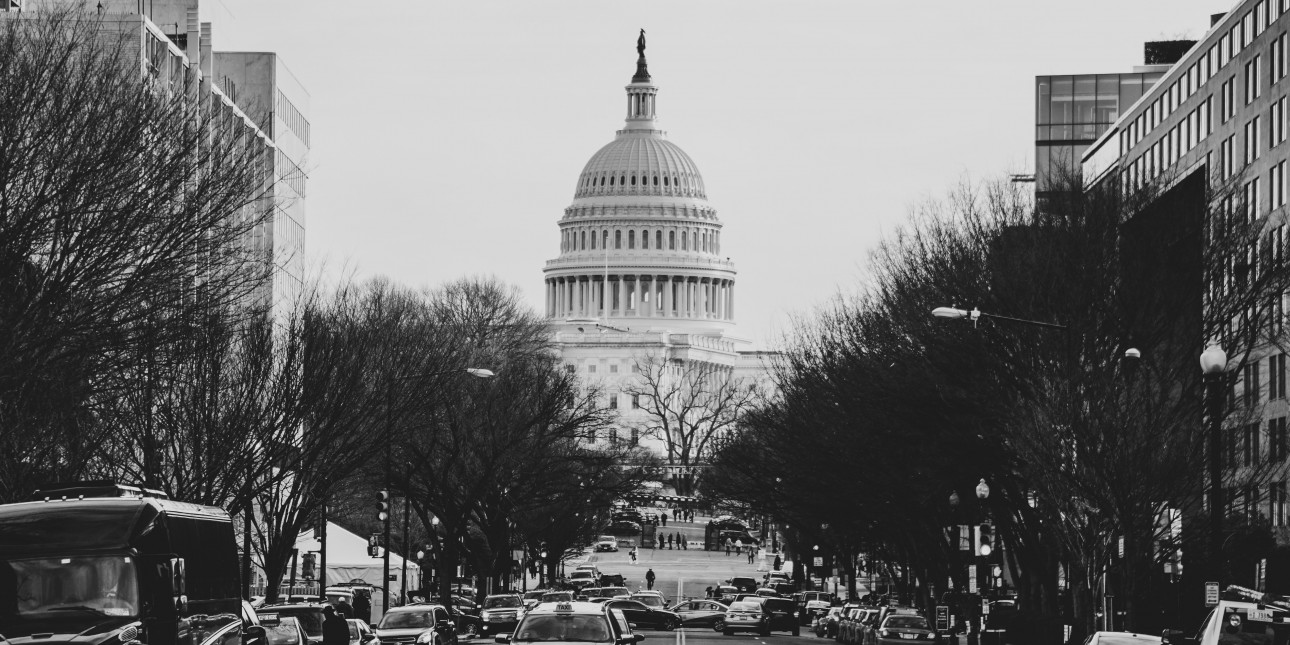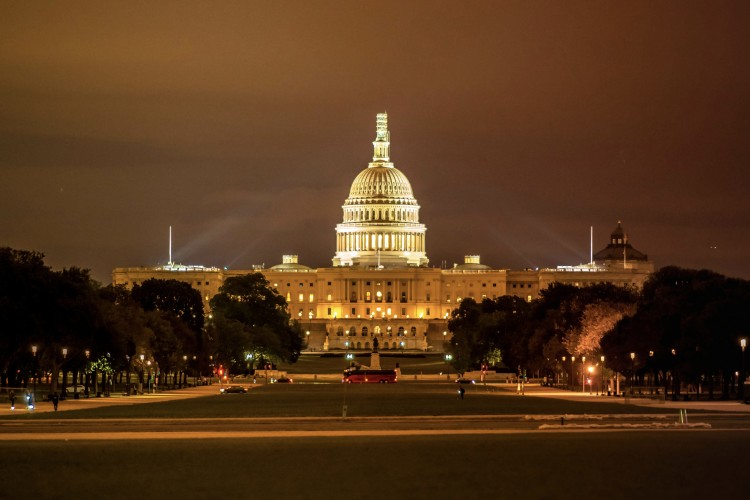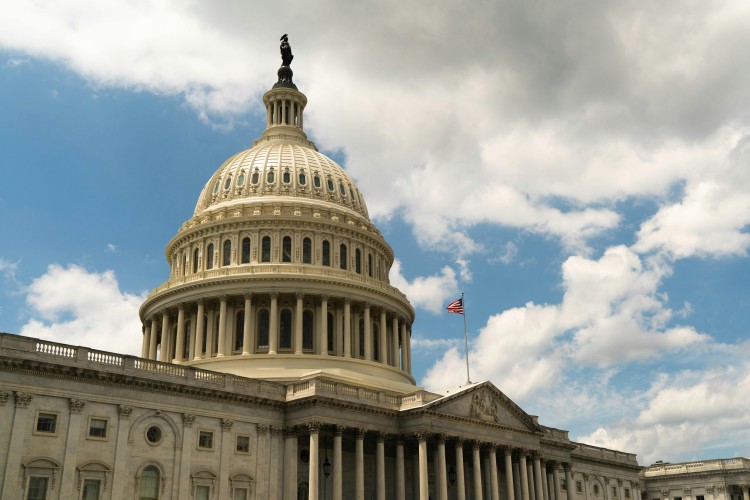Congress Releases Final FY2020 Appropriations

December 17, 2019
Congress has released a bipartisan deal to fully fund the federal government for the remainder of the 2020 fiscal year. Please note: before the funding allocations outlined below become law they must pass both chambers of Congress and be signed by the President.
The 2020 spending deal is comprised of two packages that bundle multiple appropriations bills together. It is expected that the House will vote on the packages today. The Senate will vote on the proposed legislation later this week. We anticipate both packages to pass. The deadline for the President’s signature is midnight on Friday, December 20.
- *Please note: the page numbers cited in the links below refer to the numbers on the documents themselves, not the page numbers on the PDF viewer.
Funding Levels
Package #1 of the FY2020 spending deal contains funding for the Department of Health and Human Services (HHS), as well as the Department of Housing and Urban Development (HUD). Included in Package #1 is:
- $132.4 million for Runaway and Homeless Youth (RHY) programs (see page 114), an increase of $5 million / 4% over last year’s enacted levels; and
- $80 million for the Youth Homelessness Demonstration Program (YHDP) at HUD (see pg. 51), of which, up to $10 million may be used for technical assistance. This represents level funding for YHDP overall with a slight increase for technical assistance in fiscal year 2020.
Package #2 of the FY2020 spending deal contains funding for the Department of Justice (DOJ), including the Office of Juvenile Justice and Delinquency Prevention (OJJDP). Congress recommends:
- $97 million for Youth Mentoring Grants (YMG) (see Table 39A, between pg. 39-40). This represents a $2 million / 2.1% increase over FY19 enacted levels.
Instructions from Congress
Both packages contain extensive instructions from Congress (known as “report language”) to the departments and agencies regarding the implementation of appropriated funds. These instructions are considered binding.
Package #1 funding was accompanied by the following instructions:
- Runaway and Homeless Youth. --
- Joint instructions for RHY (pg. 114): “Within 120 days of enactment of this Act, [the Administration for Children and Families] ACF is directed to brief the Committees on the feasibility of coordinating with the Department of Housing and Urban Development's ongoing study on the incidence, prevalence, needs, and characteristics of youth homelessness and housing instability, including geographic differences and vulnerable populations that have not yet been studied;” and
- House instructions (pg. 151): “The Committee supports the ability of grantees to provide prevention services, such as counseling and case management, regardless of enrollment in residential services.
- Homeless Management Information System.—"RHY program grantees are required to report data in the RHY-Homeless Management Information System (HMIS), which is maintained by the Department of Housing and Urban Development and provides an array of data on programs for the homeless. The Committee strongly encourages ACF to continue providing technical assistance to support RHY programs through this transition to ensure accurate and timely reporting of data on outcomes for homeless children and youth.”
- Youth Homelessness Demonstration Program. --
- Senate instructions for YHDP (pg. 135): “The Committee applauds HUD’s decision to use a portion of its technical assistance funding to support the 100-Day Challenge Initiative, a program that helps communities accelerate efforts to prevent and end youth homelessness. By offering local service providers the opportunity to come together to identify impediments and establish goals, the 100-Day Challenge leaves communities better prepared to confront youth homelessness in a comprehensive manner. The program also lays the groundwork for participants seeking to apply for a Youth Homelessness Demonstration Grant award.”
- House instructions for YHDP (pg. 101-102): “The Committee believes that every Continuum of Care must provide safe, inclusive, and culturally appropriate services for homeless youth. LGBTQ youth and youth of color are disproportionately impacted by experiences of homelessness. In anticipation of the transition from a demonstration program to services provided by all continua of care, the Committee directs the Secretary to compile best practices in serving youth experiencing homelessness and disseminate those best practices to all grantees. Further, the Committee recognizes the challenges faced by vulnerable youth exiting the foster care system who face significantly higher risks of experiencing homelessness, domestic violence, and sex trafficking. The Committee encourages HUD to diligently ensure that the Continuum of Care program continues to address all populations including youth who have aged out of foster care.”
- House instructions for YHDP, continued: “Maintaining progress toward ending youth homelessness.—The Administration’s regulatory impact analysis accompanying the proposed rule ‘‘Housing and Community Development Act of 1980: Verification of Eligible Status’’ regarding undocumented immigrants in assisted housing indicates that the proposed rule would threaten the housing tenure of thousands of children who are U.S. citizens. The recommendation prohibits HUD from implementing the proposed rule or proposing a similar rule in the future. The Committee rejects this and any other proposal that would likely increase the number of homeless youth.
- A 2012 study from the Williams Institute indicated that LGBTQ youth comprised up to 40 percent of the homeless population, and a 2017 study from Chapin Hall indicates that LGBTQ youth were 120 percent more likely to experience homelessness than nonLGBTQ youth. HUD’s Equal Access to Housing rules (77 FR 5662 and 81 FR 64763) are critical in ensuring that all homeless youth have access to services. To ensure progress toward ending youth homelessness, the recommendation includes a prohibition on HUD altering or rescinding these rules. In January 2017, HUD withdrew guidance that clarified the Equal Access to Housing rules—guidance of practical use to providers who serve youth experiencing homelessness. In fiscal years 2016 and 2019, the Committee requested that the Department provide a report detailing the Department’s strategy for continuing to ensure that LGBTQ individuals have access to HUD programs for which they are eligible, and the plan for disseminating this information to PHAs. HUD has yet to provide such a strategy or a plan. Accordingly, the recommendation includes language restoring the guidance that was withdrawn in 2017 and codifies the guidance in law. Together, these actions will ensure that all homeless youth have access to HUD-funded services.”
- Continuum of Care NOFA. --
- The bill text of Package #1 states that HUD “shall not deviate from the FY 2018 Notice of Funding Availability with respect to the tier 2 funding process, the Continuum of Care application scoring, and for new projects, the project quality threshold requirements, except as otherwise provided under this Act or as necessary to award all available funds or consider the most recent data from each Continuum of Care.” (See pg. 1141, lines 12-20.)
- This language ensures that HUD will use much of the 2018 NOFA for its 2020 programming, including protections for LGBTQ populations and emphasis on Housing First models.
Package #2 funding was accompanied by the following instructions:
- Youth Mentoring Grants. --
- Senate instructions for YMG (pg. 133-134): “To support the critical work of national, regional, and local organizations in nurturing and mentoring at-risk children and youth, the Committee recommends $97,000,000 for competitive, peer-reviewed youth mentoring grants, of which $10,000,000 is for helping youth impacted by opioids. Within 45 days of enactment of this act, the OJP is directed to provide a report and spend plan to the Committee detailing the criteria and methodology that will be used to award these grants, as well as an explanation of any deviations from the criteria and Committee directions used in fiscal year 2019. The Committee expects that the OJJDP will take all steps necessary to ensure fairness and objectivity in the award of these and future competitive grants. The Committee expects OJP to maintain OJJDP’s expanded eligibility for local mentoring programs, particularly in rural areas, unaffiliated with national mentoring organizations. The Committee also expects OJP and OJJDP to collaborate with mentoring stakeholders to expand youth mentoring services in rural areas inordinately affected by substance abuse, particularly heroin and opioids, and that are considered at-risk.
- House instructions for YMG (pg. 77): “The Committee recognizes the success of the Youth Mentoring program. Through trusted peer-to-peer mentoring relationships, in the community and in schools, Youth Mentoring grantees are able to provide needed attention and support to at-risk children. Mentoring relationships enhance a child’s overall well-being by improving their emotional, social, and educational development. The Committee directs that OJP provide at least $20,000,000 for mentoring programs that assist at-risk juveniles and their families who have been impacted by the opioid crisis and drug addiction.”
- *Please note, the conference report did not clarify whether $20 million or $10 million of the $97 million allocated for YMG would be dedicated for helping youth impacted by opioids. We are seeking further clarification.
- Victims of Human Trafficking. -- The Senate’s report included several instructions to the Office of Victims of Crimes (OVC) related to services for victims of human trafficking. These include:
- Support Services for Younger Victims of Sexual Exploitation and Sex Trafficking. (pg. 114) — “Young victims of commercial sexual exploitation and sex trafficking have historically faced barriers to accessing victims services due to stringent requirements to be legally recognized as victims. The Committee encourages the Department to issue guidance that young adults (ages 18–24) that have been identified by qualified youth service professionals as victims of commercial sexual exploitation or sex trafficking should be eligible for services.
- OVC should support mentoring services specifically for children and youth victims of commercial sexual exploitation or sex trafficking and their families that are comprehensive, specialized, developmentally appropriate, and trauma-informed. Young victims of commercial sexual exploitation or sex trafficking lack the connection to safe, caring, and consistent adults to support them in responding to adversity and building resilience in the transition to adulthood. Mentors can promote healing, and foster cognitive, social-emotional, and identity development in youth, and provide an ongoing connection to other services and support systems.
- OVC is encouraged to support demonstration projects to pilot and evaluate flexible housing options for both youth (aged under 18) and young adult (aged 18–24) victims of commercial sexual exploitation or sex trafficking during the transition to adulthood. Housing should be safe, developmentally appropriate, trauma-informed, and include a variety of flexible options to meet the unique needs of those served inside and outside of the child welfare system.”
- Post-Conviction Relief for Trafficking Victims. (pg. 114)— “The Committee recognizes that serious, sustained efforts and investments in victim-centered programs are necessary to help address the rise in human trafficking and is committed to helping victims seek justice and ensure that offenders are held accountable. The Committee is concerned about reports that trafficking victims are prosecuted, both at the Federal and State levels, for crimes directly related to their trafficking. Criminal convictions often disqualify victims from numerous Federal programs and impede their recovery. The Committee is concerned that removing expungement services from eligible activities for OVC grants contradicts the 2017 Trafficking in Persons Report released by the State Department, which encouraged the expansion of vacatur services.
- The Committee directs OVC to allow the use of funds for direct representation on vacatur and expungement for a conviction for a non-violent crime that is a direct result of being a trafficking victim. Furthermore, the Committee directs the Department to submit the report required in Senate Report 115–275 and codified in Public Law 116–6 regarding the Federal Government’s ability to supplement State vacatur programs.”
- Housing and Services for Victims of Human Trafficking. (pg. 113-114) — “The Trafficking Victims Protection Act of 2000 (22 U.S.C. 7101 et. seq.), as amended by section 224 of Public Law 114–22 (22 U.S.C. 7105 (b)(2)(A)), authorizes the Attorney General to make grants to develop, expand, or strengthen victim service programs for victims of human trafficking, including programs that provide housing. To comply with this Act, the Department entered into a Memorandum of Understanding [MOU] with the Department of Housing and Urban Development [HUD] to help address the housing needs of human trafficking victims.
- On July 2, 2019, HUD published a Notice of Funding Availability [NOFA] to make $13,500,000 available for grants to eligible organizations to implement and provide housing and trauma-informed, victim-centered services to victims of human trafficking. HUD modified the NOFA on August 26, 2019, before subsequently withdrawing it on September 9, 2019, without any advance notice to applicants or the Committees on Appropriations or Judiciary.
- The Committee strongly supports providing resources for victims of human trafficking in accordance with the statute, and is concerned about the lack of transparency and abrupt cancellation of this NOFA. As such, the Committee directs the Department to provide the Committee with a contingency plan for how to allocate these funds as authorized under 22 U.S.C. 7105(b) if HUD continues to further delay, as well as provide notice of any changes to the MOU within 15 days of enactment of this act.
- When transferring Departmental funds to other Federal agencies that administer services as part of a grant, the Department is directed to ensure it is consulted at least 15 days in advance of any changes being made by that agency during the grant making process to include any cancellations or delays of the grant solicitation.”
Youth Collaboratory applauds Congress’s continued support for these vital programs for youth and young adults. We will continue to closely review the two spending packages for additional details regarding funding and instructions to federal agencies. Please check back for updates, as well as information as these packages make their way to the President.


